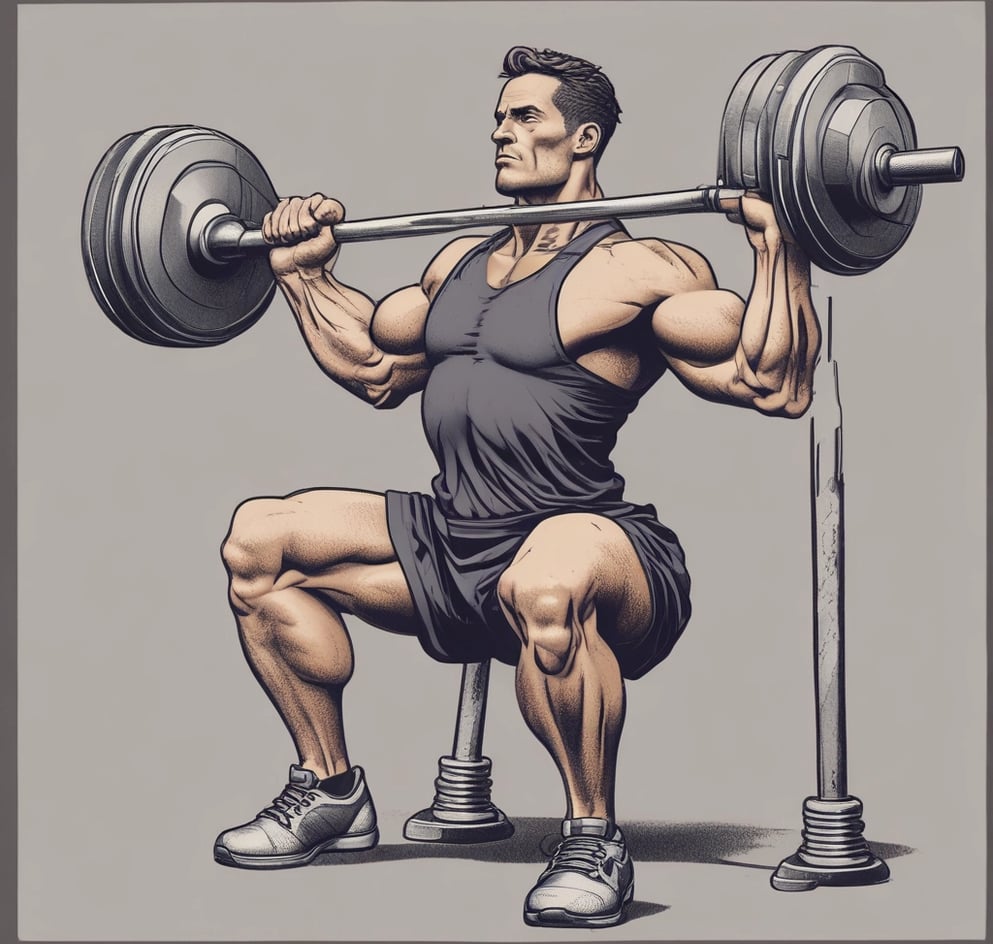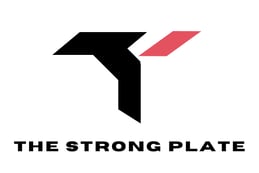Best Beginner Workouts for Strength: Your Ultimate Guide to Building Muscle and Confidence
Looking to build strength as a beginner? This guide covers the best beginner workouts for strength, including key exercises, tips, and a structured plan to help you progress.
BEGINNER FITNESS TIPS
2/1/20253 min read


Why Strength Training is Essential for Beginners
Strength training is one of the most effective ways to build muscle, increase endurance, and improve overall health. Whether you’re stepping into the gym for the first time or starting a home workout routine, learning the fundamentals will set you up for success.
Many beginners struggle with knowing where to start, which exercises to focus on, and how to structure their workouts for maximum results.
In this guide, we’ll break down the best beginner strength workouts, the benefits of strength training, and how to progress safely and effectively.
The Benefits of Strength Training for Beginners
Strength training isn’t just about lifting weights—it’s about enhancing your quality of life. Here’s why every beginner should incorporate it into their fitness journey:
Builds Lean Muscle – Muscle development leads to a higher metabolism, helping you burn more calories even at rest.
Boosts Strength and Endurance – Functional strength helps with everyday activities like carrying groceries, climbing stairs, and improving posture.
Supports Bone Health – Strength training increases bone density, reducing the risk of osteoporosis.
Improves Mental Health – Exercise releases endorphins, reducing stress and boosting confidence.
Enhances Overall Fitness – Strength training complements other types of exercise like cardio and flexibility training.
Best Beginner Strength Workouts: Key Exercises to Focus On
As a beginner, it’s important to focus on compound movements—exercises that work multiple muscle groups at once. These will give you the best results in the shortest time.
1. Squats
Muscles Worked: Quadriceps, hamstrings, glutes, core
Why It’s Important: Squats are fundamental for building lower-body strength and improving balance.
How to Do It:
Stand with feet shoulder-width apart.
Lower your hips back and down as if sitting in a chair.
Keep your chest up and core engaged.
Return to the starting position and repeat.
2. Push-Ups
Muscles Worked: Chest, shoulders, triceps, core
Why It’s Important: Push-ups build upper-body strength and improve core stability.
How to Do It:
Place your hands shoulder-width apart on the floor.
Lower your body until your chest almost touches the ground.
Push back up to the starting position.
Modification: If regular push-ups are too difficult, start with knee push-ups or incline push-ups against a bench.
3. Deadlifts
Muscles Worked: Lower back, glutes, hamstrings, core
Why It’s Important: Deadlifts strengthen your posterior chain and improve posture.
How to Do It:
Stand with feet hip-width apart and grip a barbell or dumbbells.
Hinge at the hips, lowering the weight while keeping your back straight.
Stand up by driving through your heels.
4. Dumbbell Shoulder Press
Muscles Worked: Shoulders, triceps, upper chest
Why It’s Important: Helps build shoulder strength and improves overhead mobility.
How to Do It:
Hold dumbbells at shoulder height.
Press the weights overhead until arms are fully extended.
Lower back to the starting position.
5. Bent-Over Rows
Muscles Worked: Back, biceps, core
Why It’s Important: Strengthens the upper back and improves posture.
How to Do It:
Hold dumbbells with a slight bend in the knees.
Hinge forward and pull the weights toward your torso.
Lower them back down in a controlled motion.
6. Planks
Muscles Worked: Core, shoulders, glutes
Why It’s Important: Planks improve core stability and reduce injury risk.
How to Do It:
Keep your forearms on the floor and your body in a straight line.
Engage your core and hold the position.
Beginner Strength Training Plan (3 Days Per Week)
To get started, follow this structured 3-day beginner strength training plan:
Day 1 – Lower Body Focus
Squats – 3 sets of 10 reps
Deadlifts – 3 sets of 8 reps
Lunges – 3 sets of 12 reps (each leg)
Planks – 3 rounds of 30 seconds
Day 2 – Upper Body Focus
Push-Ups – 3 sets of 10 reps
Dumbbell Shoulder Press – 3 sets of 8 reps
Bent-Over Rows – 3 sets of 10 reps
Bicep Curls – 3 sets of 12 reps
Day 3 – Full Body Strength
Squats – 3 sets of 12 reps
Push-Ups – 3 sets of 15 reps
Deadlifts – 3 sets of 8 reps
Planks – 3 rounds of 40 seconds
Common Mistakes Beginners Make (And How to Avoid Them)
1. Lifting Too Heavy Too Soon
Start with light weights and focus on good form before increasing resistance.
2. Skipping Warm-Ups and Cool-Downs
Always warm up before training and cool down after to prevent injuries.
3. Not Giving Muscles Time to Recover
Muscles grow when they rest—avoid overtraining by allowing recovery days.
4. Ignoring Proper Nutrition
Strength training requires a balanced diet with enough protein, healthy fats, and complex carbs to fuel your progress.
Tracking Progress and Staying Motivated
Sticking with strength training long-term is easier when you track your progress. Here’s how:
Keep a Workout Log – Write down exercises, weights, and reps each session.
Take Progress Photos – Visual changes often take time but can be motivating.
Set Small Goals – Aim to increase reps, weights, or workout frequency gradually.
Stay Consistent – Strength training results come with time and dedication.
Conclusion: Start Your Strength Journey Today
Strength training is one of the best investments you can make in your health. By focusing on fundamental exercises, following a structured plan, and staying consistent, you’ll build strength, confidence, and overall well-being.
Whether you’re training at home or in the gym, the key is to start small and progress over time. Use this beginner strength workout plan as your foundation, and you’ll be amazed at what you can achieve!
Are you ready to start your strength training journey?
Passionate insights on fitness and nutrition topics.
info@thestrongplate.com
© 2024. All rights reserved.


